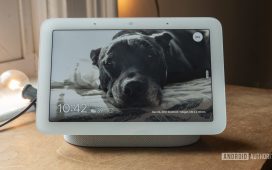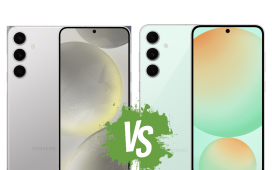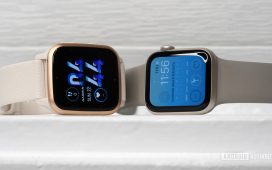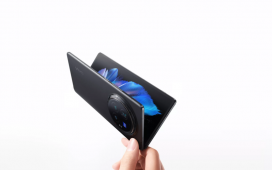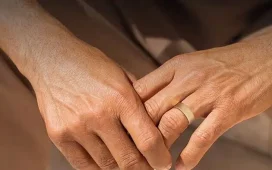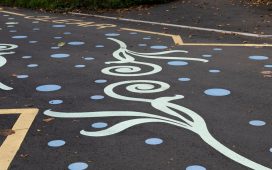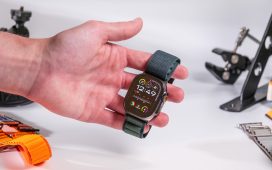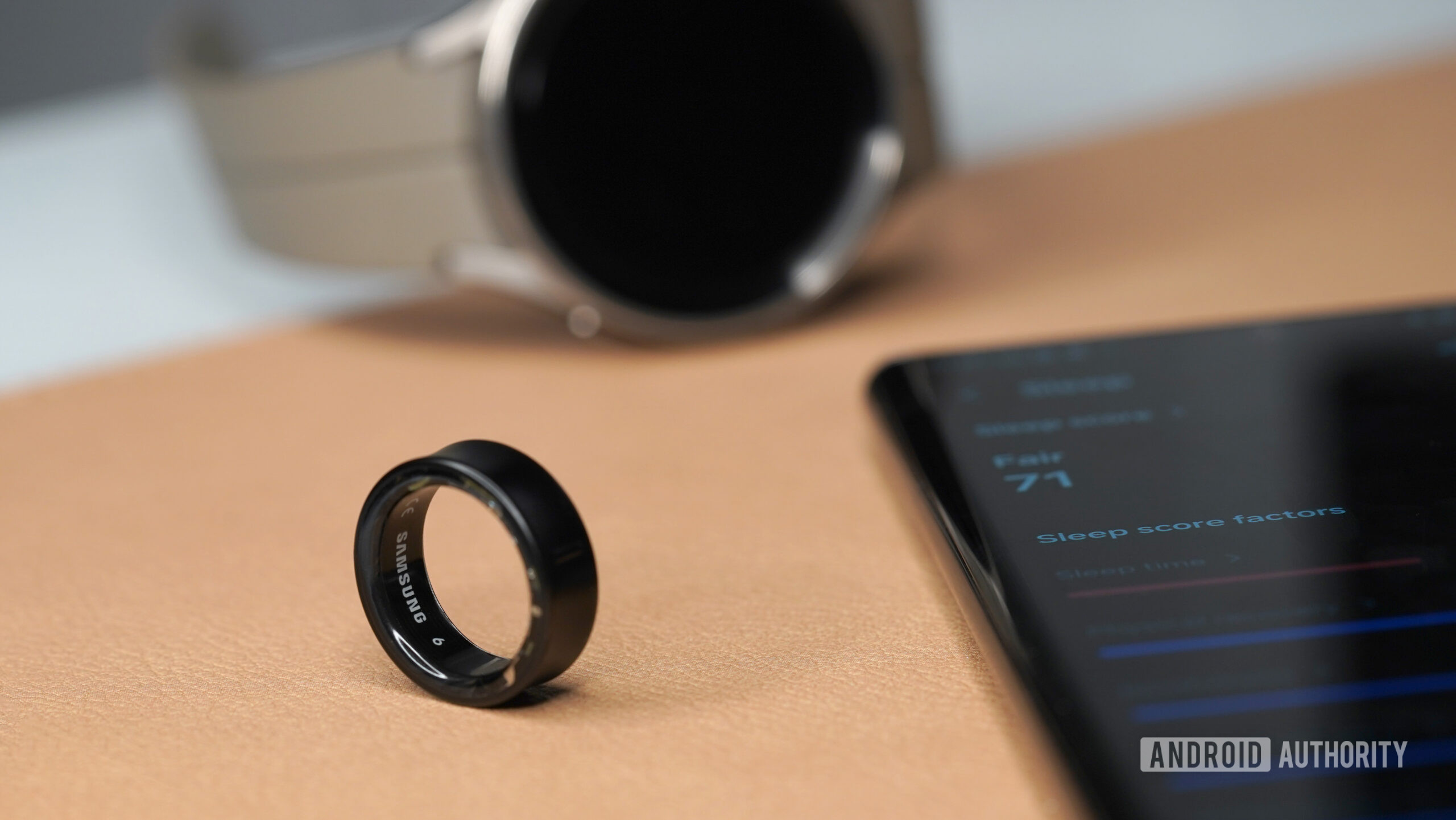
Kaitlyn Cimino / Android Authority
After over a month with Samsung’s tiniest fitness tracker, I’m still not sold on keeping the device in my bedtime routine. Sleep tracking on the Galaxy Ring hasn’t stood up against other trusted devices, and one feature has annoyed me to no end. Considering overnight wear is one of the smart ring’s biggest selling points, I’m disappointed to say the least.
Meant for bed, but a terrible bedmate
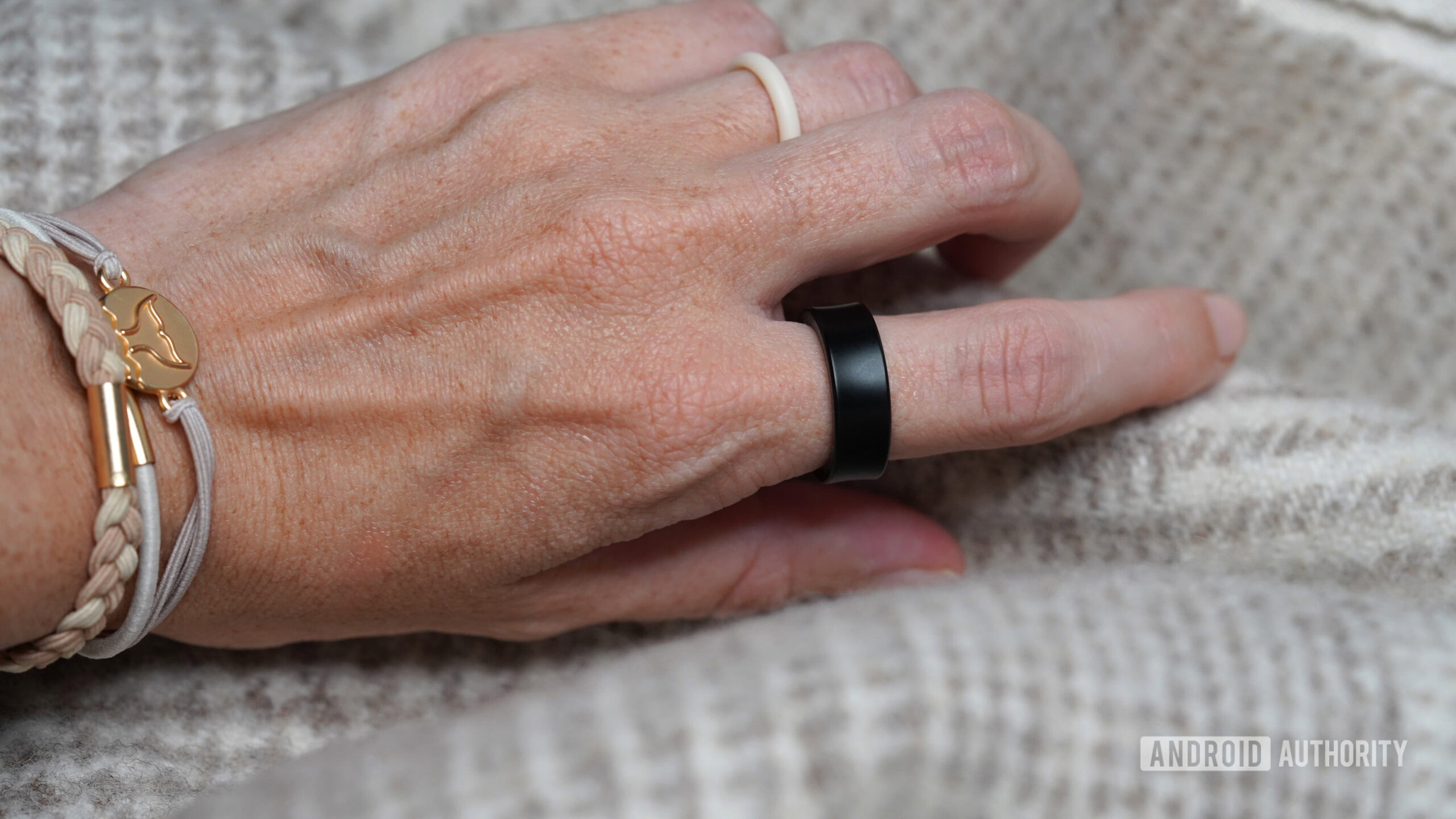
Kaitlyn Cimino / Android Authority
With its small, unobtrusive form factor, the Galaxy Ring was touted as the perfect set-and-forget wearable and a particularly good device for wearing to sleep. Its direct competition, the Oura Ring 3, is one of my most comfortable and trusted sleep-tracking devices, so I had high hopes for Samsung’s smart ring. And yet, neither I (nor my partner) have been happy with the Galaxy Ring’s presence in our bed.
Whether it’s a design flaw or an issue with fit, I am not sure, but the LEDs on the Samsung Galaxy Ring are relentless. Each night, I hit the lights just before crawling into bed, and the next thing I know, my pointer finger turns into a glow stick. I literally find myself shoving my hand into the depths of my sheets to dampen the glow. This is extremely unfortunate as the ring’s lack of display should make it a distraction-free device to fall asleep wearing. Instead, I’m left longing for a bedtime or theater mode to usher the device into darkness.
The flashing LEDs of the Galaxy Ring are relentless.
This might not be an issue for all users. It could be that the shape of my finger is not conducive to hiding flashing sensors. Regardless, I definitely wouldn’t wear the Galaxy Ring to sneak around the house in the dark (for snacks, obviously), and I’d rather not wear it to bed, either.
Flimsy and even missing data
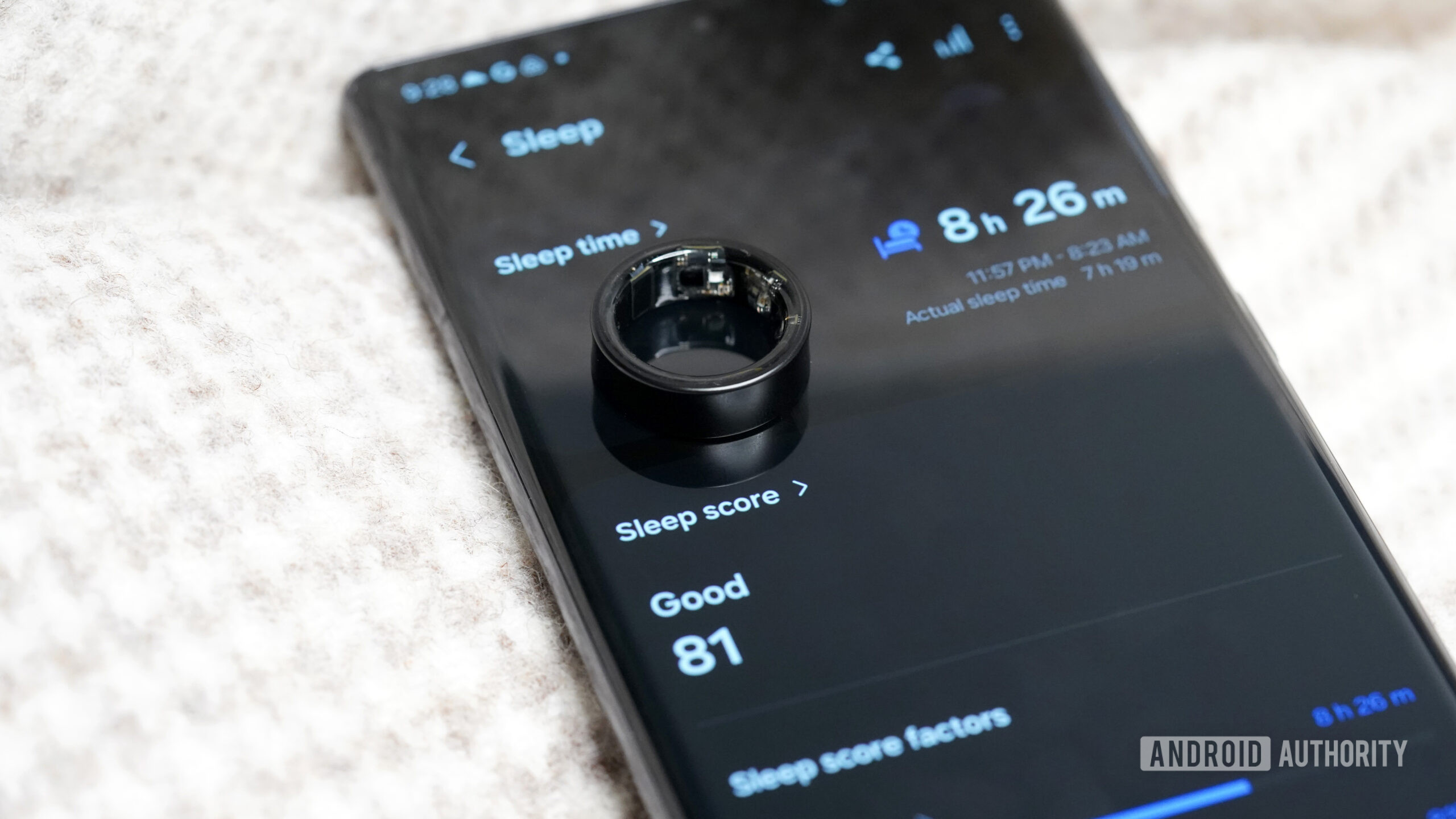
Kaitlyn Cimino / Android Authority
Unfortunately, the experience doesn’t get much better in the morning. Throughout my initial review period, and then for many nights following, I’ve worn the Galaxy Ring to bed simultaneously with other devices. These companions included a range of wearables, including the Pixel Watch 3, the Apple Watch Ultra 2, and, of course, the Oura Ring 3. I’ve also equipped a Withings Sleep Mat below my mattress.
Across the board, the Galaxy Ring has been inconsistent with the readouts from these alternative devices. There have been a few shining moments where all my devices land within range of one another, but more often than not, the Galaxy Ring is quite off.
The screenshots above represent a single night of data as recorded by my Galaxy Ring and my Oura Ring 3, each worn on one of my pointer fingers. This comparison is as direct as I can get, considering the form factors are identical and both devices were worn in the same place on each hand.
However, the Galaxy Ring greatly over-recorded my time in bed, with the reality being much closer to Oura’s roughly seven-hour estimate. The Galaxy Ring also banked me over an extra hour of sleep (if only it were so). Notably, both devices still gave me a “Good” grade for my sleep score in this particular case. On other nights, my scores were as different as 30 to 40 points apart.
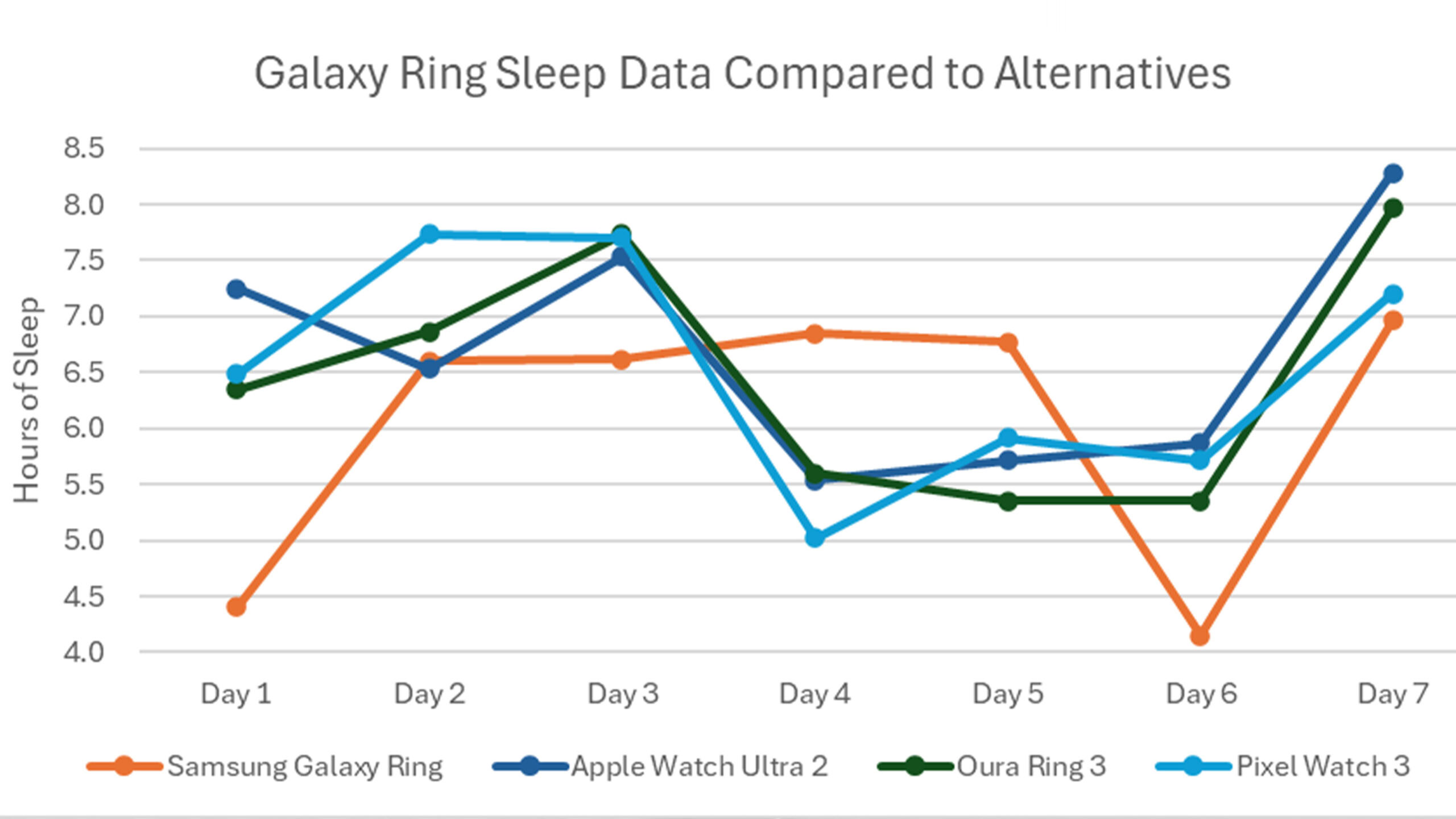
The chart above represents my total sleep time extracted from four different devices throughout a collection of nights. I didn’t include the Withings Sleep mat in this data set because I don’t always sleep on the same side of the bed lately, so I don’t have data for every night of the month. For the record, yes, I find this inconsistency in sleeping arrangements very unsettling.
Though there is always some discrepancy from device to device, you can see the Galaxy Ring fluctuates the most compared to the other three devices. Oddly, the Galaxy Ring’s data mismatched the others in a variety of ways. Some nights, it recorded close wake and bedtimes but missed middle-of-the-night wake windows (of which I have many). Other times, it overestimated my sleep, registering resting or reading in bed as sleeping and giving me a much better score in the morning than my other wearables.
On a few occasions, my data completely cut out at random intervals. During each of these missing data sets, I can only assume I was still asleep because I don’t remember waking up, but according to my sleep graph, I took the ring off completely and/or died for a brief spell.
Some nights the Galaxy Ring overestimated my sleep and other nights it cut my data short.
My hunch is that the flimsy data recording is related to the ring’s sensor contact, likely because the ring spins around or up my finger in my sleep. According to my partner, I do move a lot in bed, but other smart rings have managed to stay put just fine. Considering I used the Galaxy Ring sizing kit, I would have hoped the device would fit perfectly. I also suspect that Samsung’s sleep-tracking algorithm is not as sharp as other brands. This would explain why even the latest watches aren’t perfectly accurate either.
Sleep stages are very hard to verify without polysomnography, but Samsung’s wearables often deviate from the results recorded by devices with established accuracy, such as Oura’s smart ring. Most often, my deep sleep and REM sleep are underestimated compared to other wearables. My light sleep tends to coordinate a bit closer but is still not in total alignment. Again, though, sleep stages are not easily measurable to confirm and are not something I give much weight to.
Depth and insights
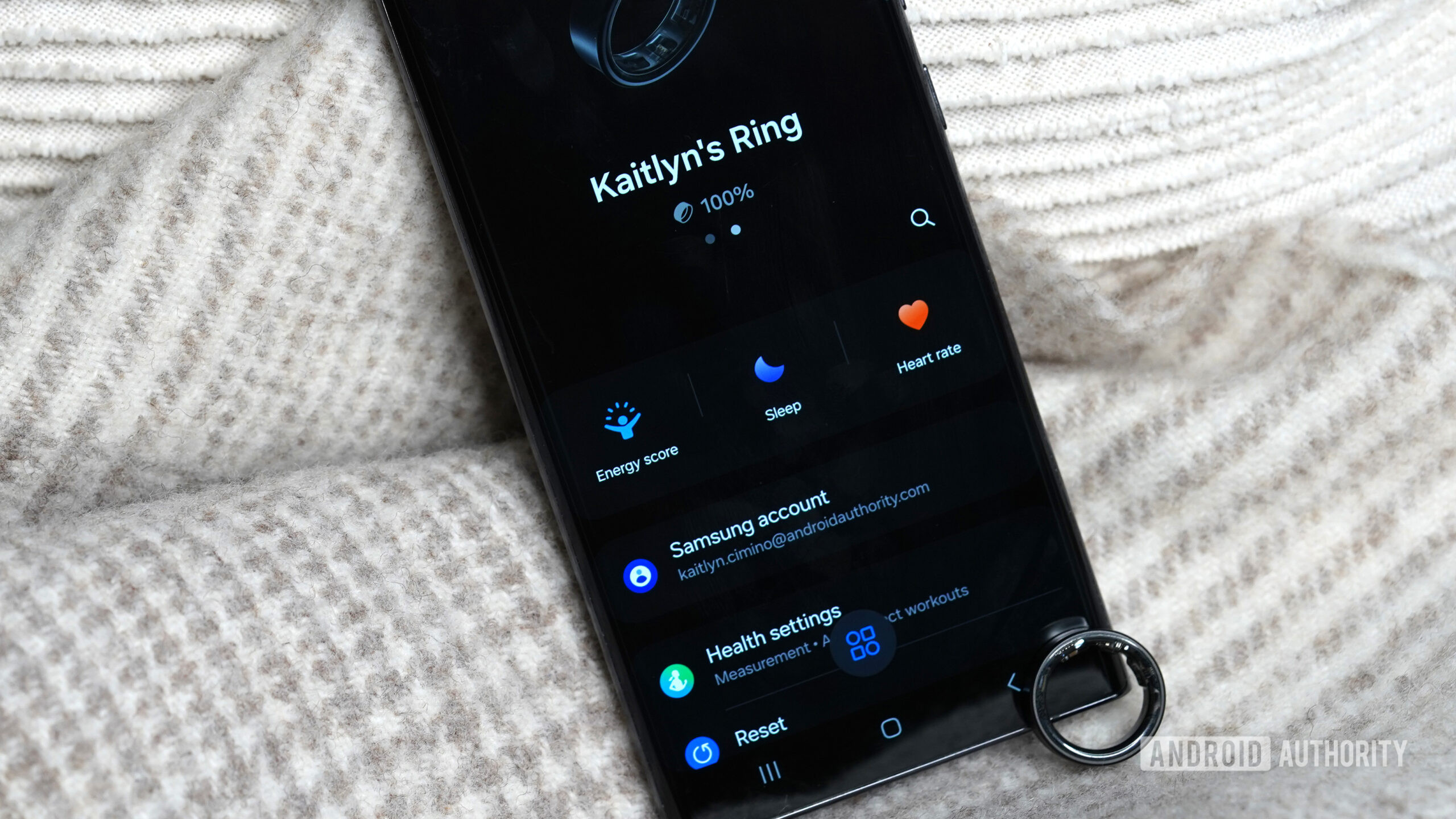
Kaitlyn Cimino / Android Authority
Beyond accuracy, Samsung also remains somewhat stagnant in terms of sleep data analysis and insights. Whether you love or loathe the company’s sleep animal program, the launch of Samsung sleep coaching was a notable step when it first landed. Since then, we’ve only seen marked improvement to the platform. Users won’t find nearly as much insightful analysis as can be found elsewhere (cough, like in Oura’s companion app, cough).
For the Galaxy Ring to earn a permanent place in my rotation, Samsung needs to improve its sleep tracking platform overall.
If the Galaxy Ring’s primary selling point is as a companion device for a Samsung smartwatch, then it needs to nail its use cases. Overnight stat collection is the most obvious. I’ve yet to be blown away by sleep tracking on any Samsung Galaxy device, but I’m especially disappointed in the ring’s shortcomings. Considering how integrated sleep data is into other wellness tools, like Energy Score, it’s even more important to me that Samsung improve the ring’s accuracy. Until then, I’m unlikely to keep donning it overnight.

